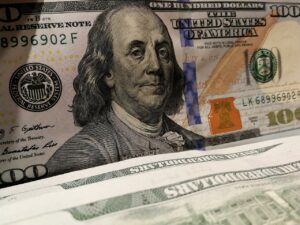
Russian Bond Trading Gets Go-Ahead On Wall Street
In recent days, a number of major banks on Wall Street have begun to facilitate Russian debt trading. This is to provide investors with the opportunity of disposing assets that are widely regarded as toxic.
Treasury Department directives
In June, most of the European and US banks pulled back from the market, after US investors were banned by the Treasury Department from buying any Russian security.
This was part of the country’s economic sanctions imposed to punish Moscow for its invasion of Ukraine. In July, the Treasury Department issued subsequent guidelines.
These were meant to help US holders in winding down their positions, prompting some of the biggest companies on Wall Street to return to the market for Russian corporate and government bonds.
It is the first time that the biggest Wall Street companies are returning and have disclosed the details related to the offered trades, along with the precautions being taken for avoiding a breach of sanctions.
The banks
Some of the banks that have returned to the market include Bank of America Corp, Deutsche Bank AG, Citigroup Inc., JPMorgan Chase & Co, Jefferies Financial Group Inc., and Barclays Plc.
According to a spokesperson for Jefferies, they are following the global sanctions guidelines while facilitating their clients in navigating this complex situation.
A Deutsche Bank source said that banks were using a case-by-case and request-only basis for trading bonds on behalf of their clients.
This was to manage their risk exposure to Russia or to its non-US clients, but the banks will not do any business other than these categories.
Stranded assets
Russian sovereign bonds worth $40 million had been outstanding back in February when Russia had invaded Ukraine.
Foreign funds were holding almost half of this amount. This saw a number of investors get stuck with Russian assets, with their values tumbling and trading became hard because of sanctions.
Two lawmakers had gotten in touch with Goldman Sachs Group Inc. and JPMorgan back in May in order to get information about Russian debt trades, as they believed sanctions were being undermined.
The Office of Foreign Assets Control (OFAC) of the US Treasury Department imposed a ban on money managers in the US in June.
This prevented them from purchasing Russian stocks or debts in secondary markets, which pushed banks into pulling back.
Since then, regulatory authorities have taken steps for mitigating the pain of investors. On July 22nd, further guidance was offered by the Treasury for settling the default payments on Russian bonds.
The guidance also disclosed that transactions involving Russian securities could be cleared, settled, and facilitated by banks, as long as this helped investors in winding down their positions.
In other news, European regulators have also taken steps to ease some of the restrictions on facilitating investors.
They can deal with the Russian assets they own by putting them in side pockets. The renewed trading activity has seen Russian bonds record an increase in their prices, which could make trading more attractive for investors.




